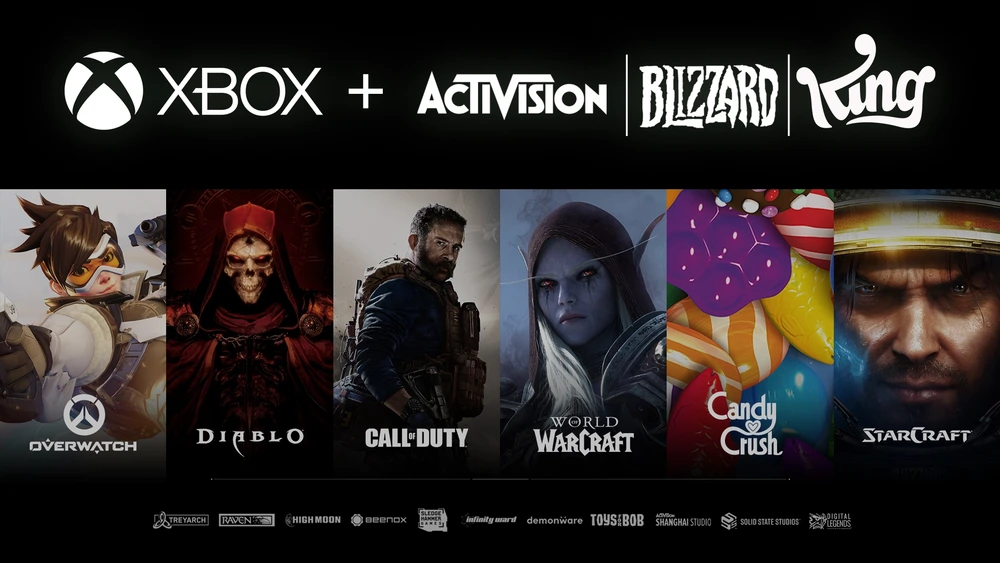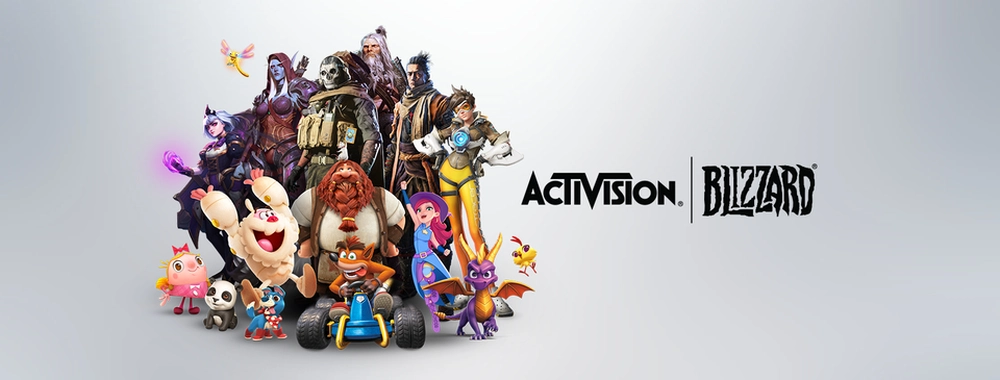Microsoft’s massive $68.7 billion Deal/acquisition of Activision Blizzard continues to face scrutiny and uncertainty in the ongoing regulatory review process. The deal was first announced in January 2022 but is still awaiting approval from the regulators around the world.
The FTC and CMA are specifically examining the antitrust implications of the combined company controlling Activision Blizzard’s popular gaming franchises like Call of Duty, World of Warcraft, and Overwatch as well as Microsoft’s Xbox platform. There are concerns it could give too much power over pricing, availability, and innovation in the gaming market with no adequate competition.
Microsoft has argued that new companies like Google, TikTok, and Snap provide enough emerging competition to keep the combined business in check. However, many disagree with this assessment and believe the acquisition should not be approved or should only be approved if certain divestments are required.
But recently the UK Competition and Markets Authority (CMA) dealt a major blow to Microsoft by blocking their proposed acquisition. The CMA concluded that the Activision deal could substantially lessen competition in the UK gaming market.
“Microsoft already has significant market power through Xbox and this merger could further entrench their position, reducing choice and innovation for gamers. By requiring an in-depth phase 2 investigation, we were able to thoroughly review the details of this complex deal and determine the substantial competition risks it poses.”
Coscelli, Chief Executive of the CMA
The CMA’s ruling introduces complications for Microsoft’s cloud gaming ambitions, which rely heavily on the tech and content from Activision Blizzard. By blocking the acquisition, the CMA has cast doubt on Microsoft’s ability to further expand xCloud, their game streaming service, through Activision Blizzard’s popular gaming franchises and platforms.

Content is king in cloud gaming, and Activision Blizzard owns some of the most attractive and dominant franchises, including Call of Duty, World of Warcraft, and Overwatch. Access to this IP and the hundreds of millions of players across these communities would have been tremendously valuable for Microsoft in competing with Sony and providing selection on xCloud.
The U.S. Federal Trade Commission is still reviewing the Activision deal, and the European Commission is also examining it for potential competition issues. If they also decide to block the acquisition or mandate major changes, Microsoft may have to scrap the deal altogether, marking a high-profile defeat.

For now, Microsoft has pledged to work with the CMA to address their concerns, or they will consider appealing the decision. However, most analysts believe divesting assets like Call of Duty would be required to gain approval at this point, and there are no guarantees even changes that drastic would satisfy regulators. The path forward is highly uncertain, with the potential for a lengthy appeals process or the deal collapsing entirely.
Either scenario would significantly impact Microsoft, Activision Blizzard, and the broader gaming industry. Microsoft’s gaming strategy would need to shift course without Activision Blizzard, and the latter would lose the benefits of being acquired by a larger partner. There would also likely be disruption as employees and resources were reorganized. For gamers, the fate of Activision Blizzard properties and the competitive landscape itself hangs in the balance during this pivotal moment.

Phil Spencer, Head of Xbox, expressed disappointment over the CMA’s ruling on Activision deal.
“We believe this acquisition would have benefitted gamers through more innovation and enhanced choice, but we respect the CMA’s decision and will continue to have open conversations with them.”
Spencer
Also read : Why Xbox Lost Console Wars: Insights from Phil Spencer
Spencer said Microsoft remains “confident in the benefits of this deal and committed to continuing to build a fair, diverse, and inclusive industry.” However, the path forward is uncertain, and major changes to the deal may be required to gain approval.

Spencer acknowledged the deal posed “complex issues,” but argued they were resolvable. Others disagree, believing the risks to competition are too great, no matter how the companies operate under one roof. There are also concerns regulatory scrutiny may chill other large tech acquisitions despite the good intentions of companies.
This CMA decision introduces new drama and uncertainty into the evolving saga of Microsoft’s controversial acquisition attempt. While the regulatory process aims to protect consumers, complex deals of this magnitude often face inevitable obstacles, appeals, and plot twists that can spark debate around potentially limiting innovation. The future of this story remains unwritten, but the latest chapter brings the blockbuster tale of tech versus regulation into sharper focus. Stay tuned for what comes next.
The CMA concluded that the acquisition could substantially lessen competition in the UK gaming market. They were concerned the deal would give Microsoft too much control over popular gaming franchises as well as the Xbox platform, reducing choice and innovation for gamers. The CMA wanted to prevent Microsoft from dominating the market and squeezing out other competitors.
The CMA’s decision throws the future of the acquisition into major doubt. Other regulators could take a similarly critical view, and Microsoft may have to block the deal altogether or make drastic changes to gain approval. Divesting key assets like Call of Duty would likely be required but doesn’t guarantee approval and could undermine the benefits. The acquisition may collapse or proceed in a significantly altered form.
He expressed disappointment over the CMA’s ruling but pledged to work with them to address concerns about the deal. “We believe this acquisition would have benefitted gamers through more innovation and enhanced choice, but we respect the CMA’s decision and will continue to have open conversations with them,” Spencer stated.